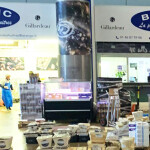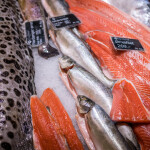The Infectious Salmon Anemia (ISA) outbreaks at two Chilean salmon farms are causing concern in the global seafood industry, but the problem hasn’t impacted supply and pricing.
Los Fiordos, which owns the Super Salmon brand, reported an ISA outbreak in a cage at the Garrao center in the Aysen region late last week. On 10 April, the Chile’s National Fisheries and Aquaculture Service reported an outbreak at a Multiexport Foods’ farm, also in the Aysen region.
The amount of ISA-impacted fish is still fairly minimal. Multiexport’s cage of around 24,000 salmon represents 12 percent of the company’s total Atlantic salmon and trout. Still, Multiexport’s shares dropped 12.47 percent on the news of 10 April.
And buyers worry that the Chilean ISA reports will increase. “The information on the first and second detection were delayed. There is probably a lot more information to come,” a U.S. farmed salmon importer that did not want to be named told SeafoodSource.
“It will definitely impact us if it gets into a big epidemic, but it is not impacting us right now. There are plenty of [non-affected] fish from other regions,” Dan Pryor, senior purchaser for wholesaler and retailer Santa Monica Seafood, told SeafoodSource.
At the same time, buyers and Chilean salmon suppliers are confident in the measures that the Chilean government has put in place since the ISA epidemic of 2009/2010.
“We are confident today that we have the necessary regulatory framework that allows us to face these new cases of ISA virus,” according to a statement from Multiexport Foods.
“Checks and balances are in place now, and they can keep it quarantined to a particular area,” Pryor agreed.
“Before, people were not managing farms correctly. Now there is massive infrastructure and laws in place, such as having to fallow the farms in certain areas for several months. I don’t expect it will get out of control and wipe out the industry like before,” the importer said.
Still, Multiexport Foods’ executives pointed out that once ISA appears in a country, it is “not possible to control and eradicate it, but you have to live with it, such as in Norway, where each year has averaged seven cases per year in the past five years,” according to the company’s statement.
Buyers report a drop in Atlantic salmon pricing over the past two weeks, but they attribute that to natural market correction after Lent. “There is a lot of discounting below the previous pricing because of carried-over fish. There is a lack of demand after Easter,” the importer said.
Average prices range from USD 4.50 (EUR 3.43) to USD 5.25 (EUR 4) a pound for 2/3s, buyers report.





